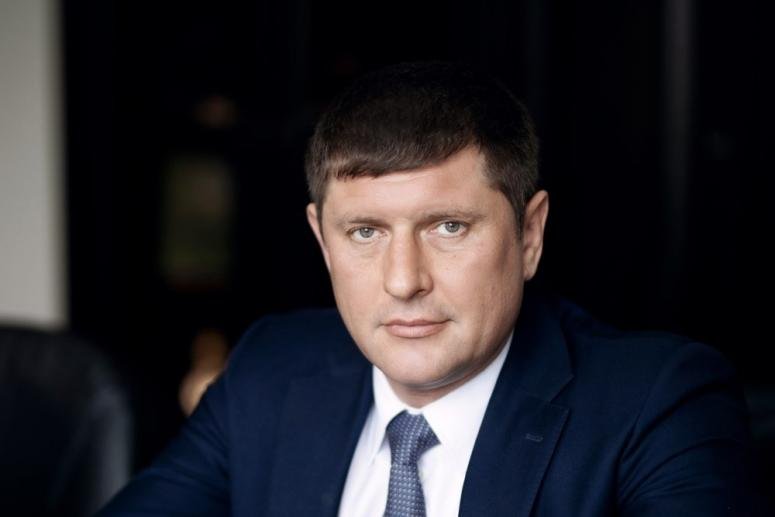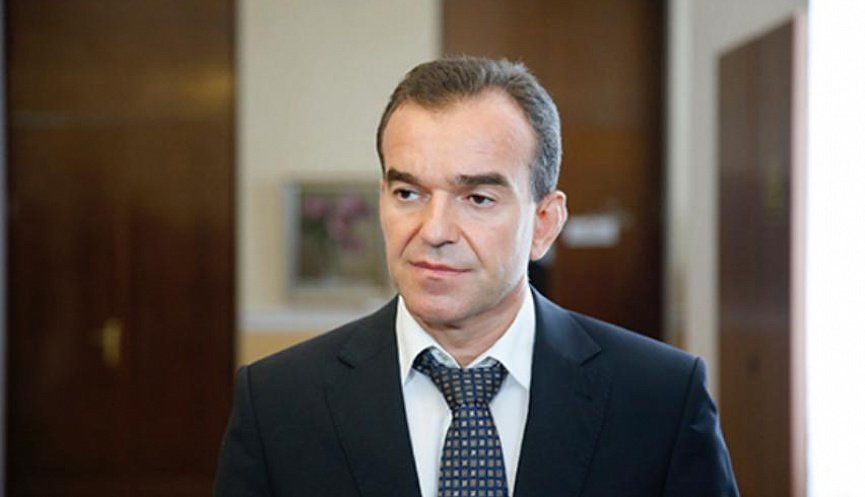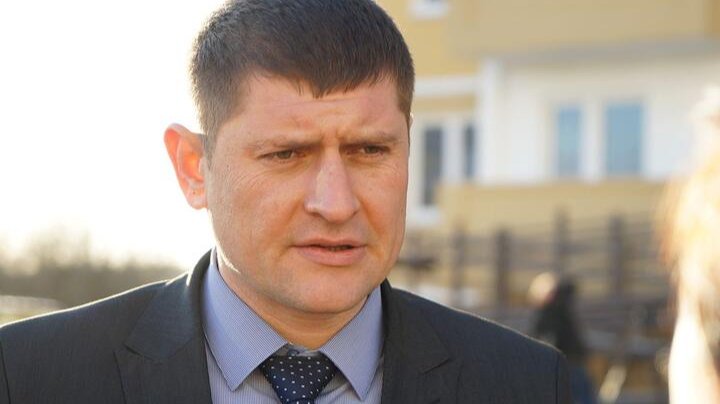On 18 August, the Krasnodar city council scheduled an extraordinary session after Andrey Alekseenko, the mayor of Krasnodar, had announced his resignation. Shortly after the announcement, it was reported that Alekseenko would now head the military-civil administration of the occupied area of Ukraine’s Kharkiv region. We spoke to residents of Krasnodar about their mayor and what he will be remembered for.
Family and money
According to the information published on the official website of the Krasnodar administration, mayor Andrey Alekseenko is 44 years old, he was born in the Krasnodar region and is a candidate of economic sciences (lower doctorate in post-Soviet states, corresponds to a PhD in economics — translator’s note). He worked as a technical maintenance engineer at road construction and industrial enterprises, and was later appointed deputy governor of the Krasnodar regional administration. He also worked at the Krasnodar mayor’s office and served as deputy chief of the Tuapse district.
In 2015, Alekseenko was appointed deputy regional governor for the fuel and energy complex, as well as the housing and utilities sector. Two years later, he got promoted to first deputy chief of the Krasnodar regional administration. In November 2021, he started working as the mayor of Krasnodar.
Andrey Alekseenko is married. His marriage seems to be very successful, at least when it comes to finances. Over the course of Alekseenko’s career, his wife’s business income steadily continued to grow. According to his income statement, the head of Krasnodar earned about 1.6–1.8 mln rubles (€26,900–€30,200) a year while working for the regional government. Up until 2019, his wife, Galina Alekseenko, earned about 6 mln rubles (€100,800) a year. In 2019, she registered as an individual entrepreneur in the field of real estate. In 2021, her annual income rose to nearly 20 mln rubles (€338,600) compared to her husband’s 1,9 mln (€32,200). According to the last year’s income statement, the family owns no cars, just one Harley Davidson motorcycle.
A number of Russian media outlets report that the wife of the Krasnodar mayor owns real estate to the tune of 272 mln rubles (€4.6 mln). Their 16-year-old daughter Polina regularly posts pictures from abroad on her Instagram, as well as photos of her lounging on a yacht and sitting behind the wheel of a BMW. Their 25-year-old son Igor Alekseenko works in the Krasnodar Investigative Committee and lives in a luxury house in the city.
Talk, not actions
On 17 November 2021, the head of Krasnodar misspoke during one of his speeches, coining a phrase that would be used often to describe his work as mayor: “People want talk, not concrete actions.”
“Yevgeny Pervyshov, the former mayor, left for the Russian State Duma, they needed to find a replacement quick,” a Krasnodar reporter that wished to remain anonymous told Novaya Gazeta. Europe. “Alekseenko was a vice governor for construction work, it was a good, comfortable position.
When he was made mayor, police searched the mayor’s office several times. Several officials were detained and taken away in handcuffs.
Alekseenko’s first deputy is Maxim Slyusarev, a former law enforcement officer. No one knows what he’s doing in the mayor’s office. There’s no picture of him on the official website. After Alekseenko was appointed mayor, he brought in a new team, which is what usually happens. The only thing is that his team is full of former law enforcement guys.”
According to the reporter, Krasnodar residents have their own version of what happened: the law enforcement wanted to install their own mayor, while the governor made his own pick. There was a conflict of interest, which led to a series of searches and arrests.
There is another unusual event from Alekseenko’s biography: in 2019, when he served as deputy governor, he whispered to Kondratyev [the governor of the Krasnodar region] during a government session: “It’s kicked the bucket, it no longer exists.” He was talking about the United Russia party. His mic was still on when he said that. Naturally, this phrase made headlines in the media.

Photo: krd.ru
“Since Alekseenko’s appointment in November of last year, there have been numerous searches at the mayor’s office, and then the law enforcement came for the mayor himself,” the reporter continues. “He was accused of taking a handgun worth 1.6 mln rubles [€27,087] as a bribe. After that, the Investigative Committee published a video of the Krasnodar mayor’s interrogation on its website. It was later deleted. United Russia excluded Alekseev from the party, but he stayed on as mayor.”
This is a rather strange story, especially considering that all pro-government media outlets started to publish similarly worded investigations into “corrupt Alekseenko”.
In late February, the team of 93.ru news outlet addressed the city administration asking them to comment on the investigation into the Krasnodar mayor as well as to explain why he continues to head the city if he was accused of bribery. However, Alekseenko’s status and the prospects of his case remained murky.
“Alekseenko didn’t have time to do anything of significance for the city,” local resident Valeria says. “In the spring, he inaugurated a tram line on the Moskovskaya Street, it was a landmark event for the city, but he didn’t start its construction. He tries to deal with the trash problem, as there are a lot of issues with garbage collection. There are unauthorised landfills everywhere, but so far, nothing has worked.”
Political exile
“I think that Alekseenko was appointed mayor against his will, and he left against his will, too,” a local MP who wished to remain anonymous in fear of losing their mandate for providing a comment to an opposition media outlet, says. “He may have been presented with a choice between criminal charges and moving to Ukraine. Besides, he took his Krasnodar team, two deputy mayors for transport and construction, as well as one district head, with him: people who actually did something for the city.
Right now, there is a temporary anarchy in the local government, people are saying “let’s put it off until a new team arrives”.
All this is happening in the run-up to the regional elections planned for mid-September.
Today, Krasnodar is one of Russia’s richest and dynamically developing cities. Its population is growing and its economy is becoming richer. A Krasnodar political expert (who also wished to remain anonymous) says that Alekseenko’s new position in the Kharkiv region is something akin to political exile.
“Alekseenko has more of an administrative and bureaucratic role, he’s no politician,” our source says. “He always relied on his boss’ [Governor Kondratyev] opinion, he does not act independently and he is not very memorable. He has remained in the role of deputy governor, even though he got a new position. He has never made any independent decisions; he only did what his higher-ups had told him to do. In any case, Krasnodar cannot be compared to the Kharkiv region, especially a part of the Kharkiv region. Besides, there are hostilities in the region, how can there be a council of ministers there, if these territories usually have a military-civil administration? There are no clear borders, even. All this leads us to the conclusion that Alekseenko was ‘written off’ as a politician.

Governor of the Krasnodar region Veniamin Kondratyev. Photo: Novorossiysk city administration
Andrey Alekseenko seems to have started preparing for his appointment to the Kharkiv region in advance. He wrote on his Telegram channel: “Russia has arrived in the Kharkiv region in earnest. It will be there for a long time. And, of course, we will help recover the region. The first 50 tonnes of humanitarian cargo were delivered yesterday to Kupyansk as part of the Krasnodar region’s patronage over the Kharkiv region. Governor Veniamin Ivanovich Kondratyev entrusted me with coordinating these efforts. A working group was set up in the region, which will determine the further areas of our cooperation.”
“I can see several reasons behind Alekseenko’s transfer to Ukraine,” another Krasnodar reporter told us on condition of anonymity. “What are the goals standing in front of the occupying administrations in Ukraine? Recovering the infrastructure and developing enormous budgets. Alekseenko is part of the construction lobby. There used to be rumours even that he wanted to get a federal-level job at DOM.RF [the agency for housing mortgage lending] instead of the mayor’s seat. He knows how everything works there. He knows about construction and the kickback system. In his position as deputy governor of the Krasnodar region, he oversaw the construction sector, he knows everything there is to know about it. So, without a doubt, he is a man of the system and will do everything that the interested parties want him to do.”
According to the reporter, there are additional factors working in Alekseenko’s favour. He is from the Krasnodar region, located in southern Russia, which means he is similar to Ukrainians in his mentality and even the manner of speech. Besides, he has a “tough guy” image: he served in the army and likes hunting. Alekseenko also does not tend to mince his words: “he’s an Alpha male, but not a poser”. He should feel more at ease than most being sent to a region where active combat is underway. It would not have been easy for, say, a liberal economist there. Alekseenko would look good in camouflage, he would not seem out of place. And finally, he knows how the construction sector operates, which will come in handy when they will have to rebuild the region, not just make money off the budget. He is not just a party bureaucrat; he is a construction worker. He knows his share about concrete, rubble, and asphalt.
“Clearly, someone has a thick binder full of dirt on Alekseenko,” our source says. “There’s no way he got off clean after overseeing the construction sector in the Krasnodar region. So, he’s probably unable to refuse this mission that ‘his Motherland’ has set before him.”
Join us in rebuilding Novaya Gazeta Europe
The Russian government has banned independent media. We were forced to leave our country in order to keep doing our job, telling our readers about what is going on Russia, Ukraine and Europe.
We will continue fighting against warfare and dictatorship. We believe that freedom of speech is the most efficient antidote against tyranny. Support us financially to help us fight for peace and freedom.
By clicking the Support button, you agree to the processing of your personal data.
To cancel a regular donation, please write to [email protected]

